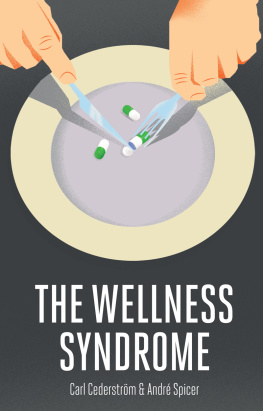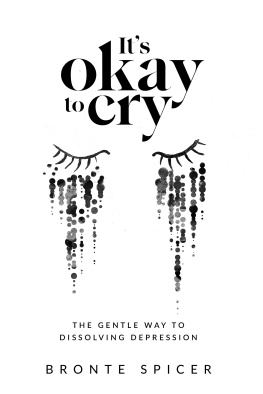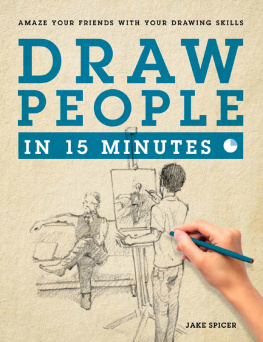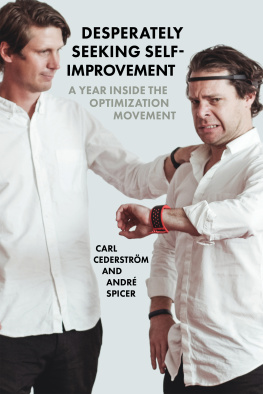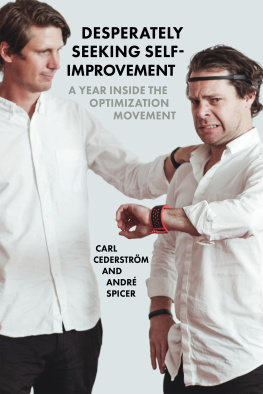Spicer Andre Cederstr & amp - The Wellness Syndrome
Here you can read online Spicer Andre Cederstr & amp - The Wellness Syndrome full text of the book (entire story) in english for free. Download pdf and epub, get meaning, cover and reviews about this ebook. year: 2014, publisher: Wiley, genre: Romance novel. Description of the work, (preface) as well as reviews are available. Best literature library LitArk.com created for fans of good reading and offers a wide selection of genres:
Romance novel
Science fiction
Adventure
Detective
Science
History
Home and family
Prose
Art
Politics
Computer
Non-fiction
Religion
Business
Children
Humor
Choose a favorite category and find really read worthwhile books. Enjoy immersion in the world of imagination, feel the emotions of the characters or learn something new for yourself, make an fascinating discovery.
- Book:The Wellness Syndrome
- Author:
- Publisher:Wiley
- Genre:
- Year:2014
- Rating:3 / 5
- Favourites:Add to favourites
- Your mark:
- 60
- 1
- 2
- 3
- 4
- 5
The Wellness Syndrome: summary, description and annotation
We offer to read an annotation, description, summary or preface (depends on what the author of the book "The Wellness Syndrome" wrote himself). If you haven't found the necessary information about the book — write in the comments, we will try to find it.
The Wellness Syndrome — read online for free the complete book (whole text) full work
Below is the text of the book, divided by pages. System saving the place of the last page read, allows you to conveniently read the book "The Wellness Syndrome" online for free, without having to search again every time where you left off. Put a bookmark, and you can go to the page where you finished reading at any time.
Font size:
Interval:
Bookmark:

The Wellness Syndrome slinks like a submarine beneath the disingenuously placid surface-narratives of contemporary ideology, before torpedoing, with devastating effect, that most pernicious of all neoliberal doctrines: positiveness.
Tom McCarthy, author of Remainder, C and Satin Island
A fascinating and timely investigation of the modern ideology of wellness, with its moralizing insistence that being a good member of society means meditating more, exercising more and using your smartphone to track sleep patterns, your diet and even your sex life. Carl Cederstrm and Andr Spicer vividly show how the consumer economy has co-opted health and even happiness itself and warn that our fixation on wellness is ultimately an anxiety-inducing, isolating and joyless way to live.
Oliver Burkeman, Guardian columnist and author of The Antidote: Happiness for People Who Can't Stand Positive Thinking
A wonderful piece of work which exposes the wellness ideology for what it is: a stupid and dreadful fantasy of authentic self-mastery. As this timely and entertaining book shows, such fantasies must be nailed.
Simon Critchley, The New School for Social Research
We all obscurely sense that politics has dramatically shifted. Less involved in the body politic than ever, we are all far more deeply engaged with our own bodies, through medicine, meditation workshops or fitness classes. As this insightful and elegant book shows, this shift marks a dramatic change in our societies as it makes health and happiness the new markers of morality or immorality. Fat people and smokers are now united in their common immorality. Marshalling an impressive array of evidence, this book sheds a much-needed light on the new tyranny exerted by the cultural imperatives of health and happiness.
Eva Illouz, Hebrew University of Jerusalem
Using a comprehensive set of case studies, Carl Cederstrm and Andr Spicer diagnose contemporary capitalism's obsession with wellness. The Wellness Syndrome is a mordantly witty analysis of how ideology works today. It demonstrates that the fixation on health is itself pathological and that sickness can be liberating.
Mark Fisher, Goldsmiths University
For Esther and Rita

Copyright Carl Cederstrm and Andr Spicer 2015
The right of Carl Cederstrm and Andr Spicer to be identified as Authors of this Work has been asserted in accordance with the UK Copyright, Designs and Patents Act 1988.
First published in 2015 by Polity Press
Polity Press
65 Bridge Street
Cambridge CB2 1UR, UK
Polity Press
350 Main Street
Malden, MA 02148, USA
All rights reserved. Except for the quotation of short passages for the purpose of criticism and review, no part of this publication may be reproduced, stored in a retrieval system, or transmitted, in any form or by any means, electronic, mechanical, photocopying, recording or otherwise, without the prior permission of the publisher.
ISBN-13: 978-0-7456-5560-4
ISBN-13: 978-0-7456-5561-1 (pb)
ISBN-13: 978-0-7456-8893-0 (epub)
ISBN-13: 978-0-7456-8872-5 (mobi)
A catalogue record for this book is available from the British Library.
Library of Congress Cataloging-in-Publication Data
Cederstrm, Carl, 1980
The wellness syndrome / Carl Cederstrm, Andr Spicer.
pages cm
Includes bibliographical references and index.
ISBN 978-0-7456-5560-4 (hardback : alk. paper) ISBN 978-0-7456-5561-1 (pbk. : alk. paper) 1. Conduct of life. 2. Well-being. I. Title.
BJ1595.C623 2015
128dc23
2014022503
The publisher has used its best endeavours to ensure that the URLs for external websites referred to in this book are correct and active at the time of going to press. However, the publisher has no responsibility for the websites and can make no guarantee that a site will remain live or that the content is or will remain appropriate.
Every effort has been made to trace all copyright holders, but if any have been inadvertently overlooked the publisher will be pleased to include any necessary credits in any subsequent reprint or edition.
For further information on Polity, visit our website: politybooks.com
Being a good person these days does not mean curbing the sinful longings of the body, mortifying the weak flesh, following your conscience and preparing through constant prayer for your departure from this life here below; it means living well. Bad cess to anyone who lets a day pass without some enjoyment!
Herv Juvin, The Coming of the Body, 2010
As students at the cole Normale Suprieure, Sartre and his close friends had more important things to contemplate than their personal wellness. A generous observer might have described their diet as varied: a massive intake of stodgy books alternated with laxatives, consisting of cigarettes, coffee and hard liquor. In a world defined by absurdity, there were more acute issues to deal with than perfecting one's physical wellbeing. For Sartre's set, being students was to engage promiscuously with thinking, and to take risks with one's mind not to waste time thinking about how to eat correctly.
Slightly less than a century later we find a new trend at North American universities. To shape their lives in an image of wellbeing, thousands of students across the United States are encouraged to sign wellness contracts. You agree to a lifestyle aimed at enhancing body, mind and soul. If you sign the Campus Wellness Contract at the University of Massachusetts, Amherst, you promise to maintain an alcohol- and drug-free lifestyle. You will then get a taste of what such contracts call a holistic approach to living. But then you have to give something back. You have to contribute positively to the community, respect different motivations for choosing this living option, participate in community events, and not possess drink or other drugs. And of course you need to abide by the philosophy of the Wellness community.
These wellness contracts are not incidental. They are now offered by at least a dozen universities across the United States. While most promote a substance-free lifestyle, each university has its own shtick. North Dakota takes a broad approach, offering physical, social, emotional, environmental, spiritual and intellectual wellness. At Syracuse, you get group trips to local parks and lakes. You also get nutrition demonstrations and presentations; meditation, yoga and other forms of stress reduction; parfait nights and more. In the more committed wellness communities, students are requested to carefully monitor their progress against the wellness goals they set out at the beginning of the year.
This may be a good thing for eager young students, at least if you ask their concerned parents. Wellness contracts make sure that students avoid harmful hedonism while encouraging other social activities (such as the mandatory parfait nights). What is wrong with turning universities into year-round health spas to help students grow their bodies and minds?
The problem, of course, is that this project produces a very particular version of the student: the sanitized and straight-thinking student, who would not mix well with Sartre and his radical friends. What is likely to disappear here is a particular kind of college education where students experiment with transformative politics, take mind-expanding substances, encounter the ravages of an unhealthy diet, and experience intense and soul-destroying relationships.
Next pageFont size:
Interval:
Bookmark:
Similar books «The Wellness Syndrome»
Look at similar books to The Wellness Syndrome. We have selected literature similar in name and meaning in the hope of providing readers with more options to find new, interesting, not yet read works.
Discussion, reviews of the book The Wellness Syndrome and just readers' own opinions. Leave your comments, write what you think about the work, its meaning or the main characters. Specify what exactly you liked and what you didn't like, and why you think so.

